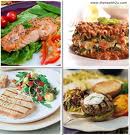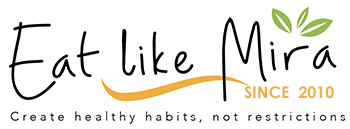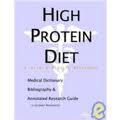 How effective is this eating plan for weight loss?? Can a diet focusing on lean protein sources be good for you??
How effective is this eating plan for weight loss?? Can a diet focusing on lean protein sources be good for you??
High- protein diets have become so popular now and everybody tend to decrease their carbohydrates’ intake thinking they will lose weight quickly.
And who hasn’t heard about Atkins diet?
These fad diets often fail to meet human’s essential needs for vitamins, minerals and fiber, BUT… they do lead to weight loss!
The normal diet for a normal person based on the food guide pyramid encourages people to have 50 % calories from carbohydrates, 25 % calories from proteins and 25 % calories from fat.
The high protein emphasizes on having up to 35 % calories from proteins.
When I want to determine if the client will benefit from a high-protein diet, I can say this depends on the client. I usually go with my own clinical judgment.
My first choice will be a standard diet which is varied, moderate, using the low-glycemic index carbohydrates (45 to 50 %). This diet will work with them especially if they are new to diets, but with time, they need some changes with their diets.
If my clients got to a plateau stage, I need to alter their diet, this is when I go with a high-protein eating plan, and this is of course after checking their blood tests.
Another reason can be insulin-resistance. If a client is insulin-resistant, that means his pancreas is secreting a lot of insulin which is not used by the cells, so a high level of insulin will be present in the blood.
Eating carbohydrates can cause a higher increase in insulin in the blood which causes obesity and weight gain.
What gives protein the edge over carbohydrates when it comes to weight loss??
Sariety!! Proteins give you greater satiety, making you feel fuller for a longer time. So they are better in controlling appetite.
I personally deal with a lot of obese people. They can’t get that satiety on a high- carbohydrate diet.
Another reason is thermogenesis which is the energy needed to digest and absorb food. Proteins have a higher rate of thermogenesis than both carbohydrate and fat, so people use more energy when going with high- protein diet.
Our body is divided into lean body mass which is the water, the muscles and the minerals, and into fat body mass.
High- protein diet helps in increasing the lean body mass, by flushing the water out of the body, so by decreasing the water retention in the body, but without making us lose the muscles.
And of course you need to eat lean proteins like skinless chicken, beef meat, grilled fish fillet, grilled salmon, boiled eggs… Because you need to decrease the fat mass as well!
Proteins play a role in both muscle building and muscle maintenance.
A normal person protein needs: 0.8g * body weight in kg (g/kg)
Body builders protein needs: up to 1.8 g * body weight in kg (g/kg)
Usually body builders take protein shakes because they can’t meet their protein recommendations only from food.
BUT…. If you are a body builder, you need to watch out from the over intake of proteins which will put an overload on your kidneys, creating a nephrotic syndrome (when proteins start to appear in the bowl).
So don’t take protein shakes without a dietitian’s supervision!
What to keep an eye On:
Fat:
Although high protein diets produce positive effects on blood glucose levels and on blood lipids levels by decreasing insulin production and reducing triglycerides, it is important to remember that even with focusing on lean protein, this type of diet is still higher in total fat and cholesterol than high-carbohydrate diet.
Try not to consume red meat. High intake of red meat and processed meat like hot dogs, ham, sausage, specifically if cooked at high temperatures is linked to prostate cancer in men.
Fatigue:
While a high-protein diet can make you lose weight( after asking an expert of course), it might decrease your energy, and make you feel stressed. This is when you start binging on carbohydrates and ruining your diet.
Carbohydrates produce serotonin, this hormone will make you feel relaxed and happy.
So you don’t have to do the high-protein diet for a long period of time. And you need to re-include carbs slowly slowly and in a progressive way not in one shot!
Example: the first week, include fruits between your meals, the second week, include rice for lunch or bread for breakfast, the third week, include bread for breakfast and dinner and so on…
As I said before, high –protein diets are not for everyone. We have to look at the person’s blood tests to see if this diet can fit with this person.
Always start by a varied diet which includes all sort of food categories.
Don’t go with a high-protein diet unless you ask a dietitian about it!
Over eating proteins can be harmful as well!



 WhatsApp us
WhatsApp us